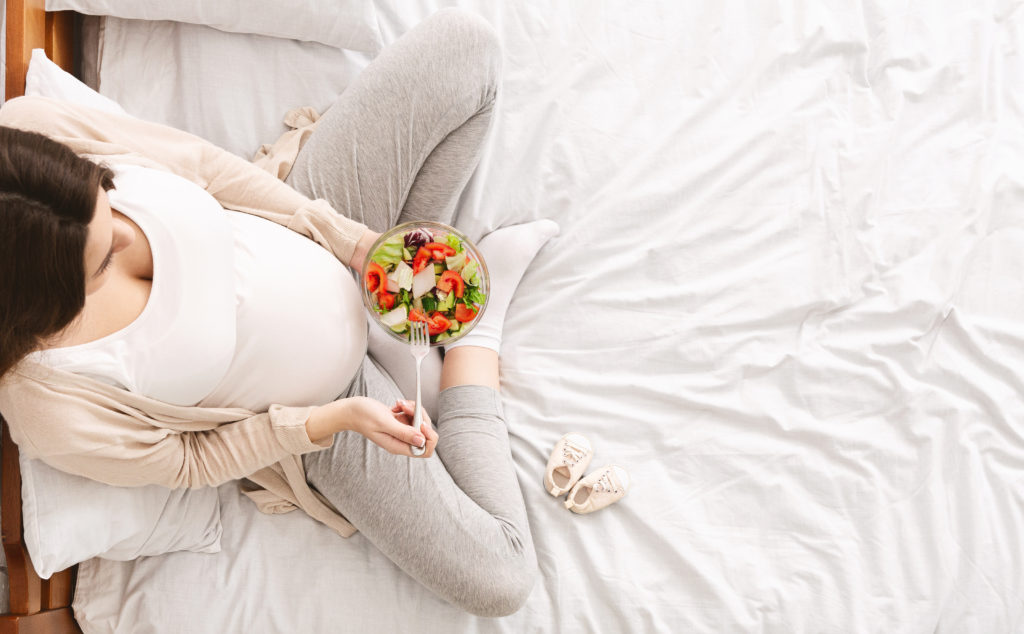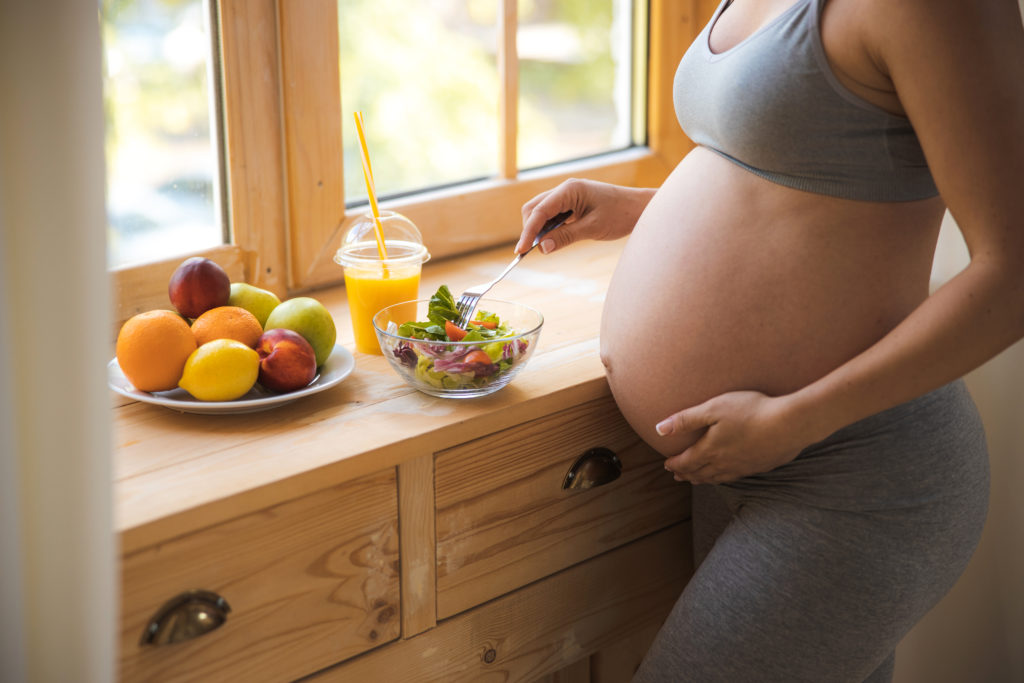Pregnancy is a holistic occasion where women celebrate their bodies even more. Whether it’s going to be the first child or the second child, those nine months of jubilant adventure has to be a life-changing experience. If you’re one of these expecting moms, congratulations!
Throughout those months of carrying life inside your tummy, the food you consume is not just for yourself but for your little angel as well. Therefore, you have to eat healthily. Some believe that your child becomes ‘what you ate’ during pregnancy. For that reason, the lifestyle you’re practising will reflect on your baby’s condition when you give birth.

The Importance Of Good Nutrition During Pregnancy
During pregnancy, it’s a must to make smart choices regarding which food you eat. Having the appropriate weight gain, enough fluid intake, and a balanced diet is said to be a key component for a healthy lifestyle during pregnancy.
During the first trimester, it seems that more than half of pregnant women experience vomiting or nausea. In this case, you might need to take the right vitamins and the proper nutrition to keep your baby healthy. You should also call your doctor for precise prescriptions or find an informative post online that could advise you of natural remedies for morning sickness.

Tips For Eating Healthy During Pregnancy
To turn your pantry into a haven of healthy and good foods, here are tips that could give your baby a healthy start to life.
- Take Your Breakfast
If you’re used to skipping breakfast in the past, it’s time to forget about that habit once you’re pregnant. Since you are to feed yourself and your baby at once now, the first meal of the day should be a necessity.
Depending on how queasy you feel, you can start your meals with foods rich in the following nutrients:
- Fibre
Fibre is believed to help stabilise blood sugar, lower cholesterol, and prevent constipation. It is recommended that the ingredients of the foods you eat must contain about 25 to 35 grams of fibre per serving. Examples include beans in burritos, oats in cereals, or fruits rich in fibre that you can pair with yoghurt.
- Whole Grains
Whole grains are loaded with vitamin B. This vitamin is an essential nutrient for your baby’s growth. These carbs are also believed to make you feel full quickly. Thus, you can take oatmeal, cereals, or whole-wheat bread to load up on the grains.
- Protein
Your baby needs amino acids to grow strong. You can gain this nutrient from foods rich in protein, such as eggs, omelettes, Greek yoghurt, peanut butter, or dairy-infused smoothies.
- Calcium
To grow or develop strong bones for you and your baby, you’ll have to take about 1,000 mg of calcium to be stronger. You can obtain this nutrient from fortified orange juice, sesame seed bread, almonds, or calcium-rich yoghurt.
Just like every meal of the day, make sure to keep your food fresh. Also, wash your hands as you prepare your meals and before you eat. To keep things clean and healthy, you can practise these not just in the morning but throughout your meals for the day.
- Focus On Getting Adequate Folic Acid
It’s believed that to make your baby the healthiest person possible, getting an adequate amount of folic acid during pregnancy is necessary. This is because folic acid is thought to help reduce the uncertainty of neural tube defects or other congenital disorders.
Aim to take 400 mg of folic acid as an everyday multivitamin. However, it’s best to consult your doctor first about the vitamin that’s right for you. Besides the vitamins, you can also obtain the same nutrients out of breakfast cereals, rice, pasta, and bread.
- Limit Your Caffeine Intake
Caffeine may be a stimulant to make you feel more alert or boost your energy. However, it’s recommended to limit your caffeine intake when you’re pregnant.
Regardless of how it’s believed to be safe for the general public, it may still cause adverse side effects and pose risks when expecting. This is because pregnant women metabolise caffeine much more gradually. It can also affect the baby’s health as it passes the placenta and invades your baby’s bloodstream, which could heighten the risk of miscarriage.
- Avoid Sugary Foods
Whether you’re pregnant or not, starting your day with sugary fruits, sweet breakfast bars, doughnuts, or sugar-filled cereals is thought to increase the risk of gestational diabetes. Always look for alternatives with less added sugar.
Final Thoughts
Practising good nutrition during pregnancy gives you the best chances of giving birth to a healthy baby. As your baby starts growing inside your tummy, do them a favour by consuming nutrient-dense foods and vitamins. However, don’t forget to discuss things with your doctor first to find out what’s most suitable for your baby’s health.



No comments yet. Be the first one to leave a thought.